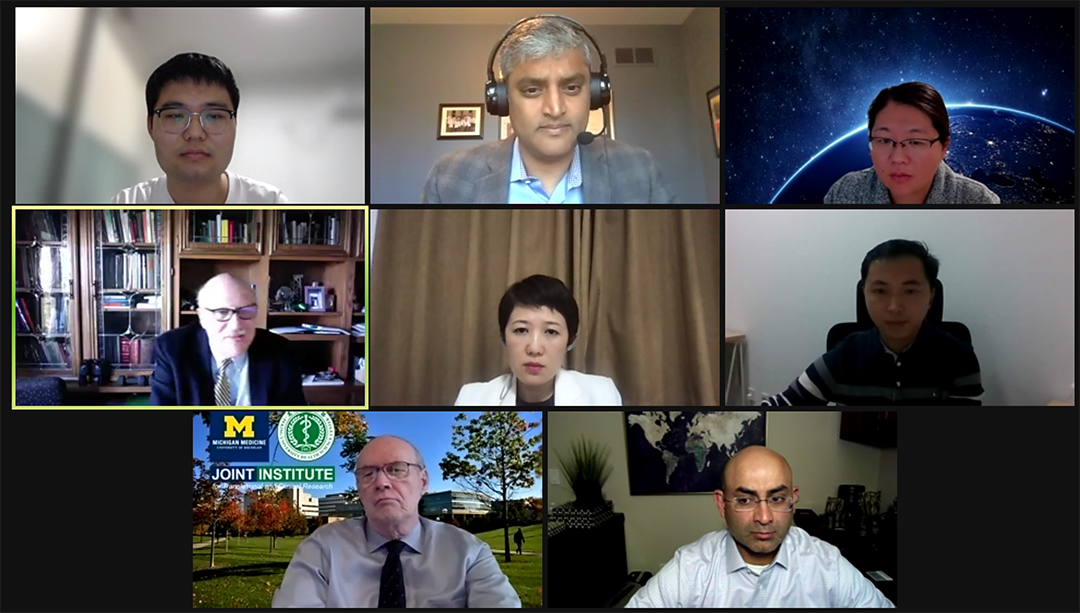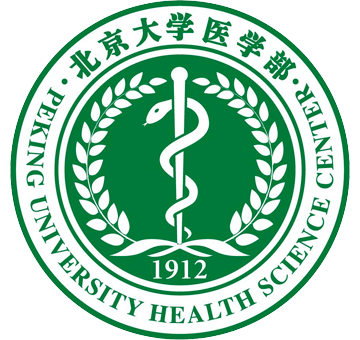The Coming Data Deluge: JI colleagues gather to talk data science, AI
A recent Trusted Conversations roundtable discussion covered rapid rise and remaining roadblocks of Artificial Intelligence (AI).
Currently, Michigan Medicine generates about 20 terabytes of patient data collectively each year for its 4 million patients.
But as technology changes both the kinds of data collected and the means in which to gather it, future medical studies could sweep up as much as 20 terabytes of data per patient.
“We call it the data deluge – a flood of data that is coming our way,” said Professor of Cardiovascular Diseases Brahmajee Nallamothu, MD. “How do we turn this data into knowledge at the bedside that helps our patients? That is a core issue that we are working to address as part of our U-M Precision Health program.”
Dr. Nallamothu, also a Co-Director of U-M Precision Medicine, was a featured panelist in a recent Trusted Conversations roundtable discussion with Joint Institute colleagues at Peking University Health Science Center (PKUHSC).
Titled “Artificial Intelligence for Precision Health: Current Trends, Lingering Challenges and Future Possibilities,” the April 22 event highlighted Nallamothu and his counterpart Luxia Zhang, MD,MPH, a Nephrology professor and the Vice Dean of the National Institute of Health Data Science at Peking University. Together with a handful of panelist colleagues and audience that included almost 100 watching from both the US and China, the two engaged in a discussion that covered rapid rise and remaining roadblocks of Artificial Intelligence (AI).
“With increasing digitalization, health AI has become a hot topic,” said Zhang. “Despite the fact that current AI technology has challenges to overcome, many believe this has the potential to solve multiple medical problems.”
The United States and China lead the world in the numbers of scholarly publications on health AI, and the Chinese National Science Foundation is investing heavily in the subject, with annual awards in AI rising from around $100 million in 2012 to more than $350 million in 2019, Zhang showed. For its part, the JI has declared Precision Health and AI a strategic priority of future collaborations between Michigan Medicine and PKUHSC.
Current medical applications for AI include the screening of X-rays or CT scans, allowing the machines to scan for anomalies faster and more efficiently than people can. “But the future possibilities expand far beyond imaging,” Zhang said.
“Firstly, AI can help physicians to reduce workloads in areas that are labor intensive, but the next step is really about population health,” Zhang said. “With wearable devices, I think it is feasible to use AI products to do health promotion and encourage healthy behavior at home. We could expand healthcare far beyond the hospital.”
“Such projects would entail navigating complex patient privacy issues,” Nallamothu said, “as well as creating common standards outlining how such data would be gathered at scale to ensure accurate comparisons.”
“There’s often a huge heterogeneity of data collection, where it’s gathered in unique ways at a system or even a local level,” Nallamothu said. “And when you try to apply what is happening here (at U-M) to system that is even literally just across the street, things can start to fall apart.”
Moderated by Brian Athey, U-M Chair of Computational Medicine and Bioinformatics, the discussion was the fourth in the Joint Institute’s Trusted Conversations roundtable series. The regular sessions are intended to foster an environment for colleagues from both institutions to come together outside a formal, in-person meeting in order to discuss trends, big ideas, and potential new areas of exploration.
“Like most conversations among friends, we want to return and talk more,” said JI Co-Director Joseph Kolars, U-M Senior Associate Dean for Education and Global Initiatives. “I would like to see us create opportunities in this area because I think we can do things together that neither one of us can do alone.”



